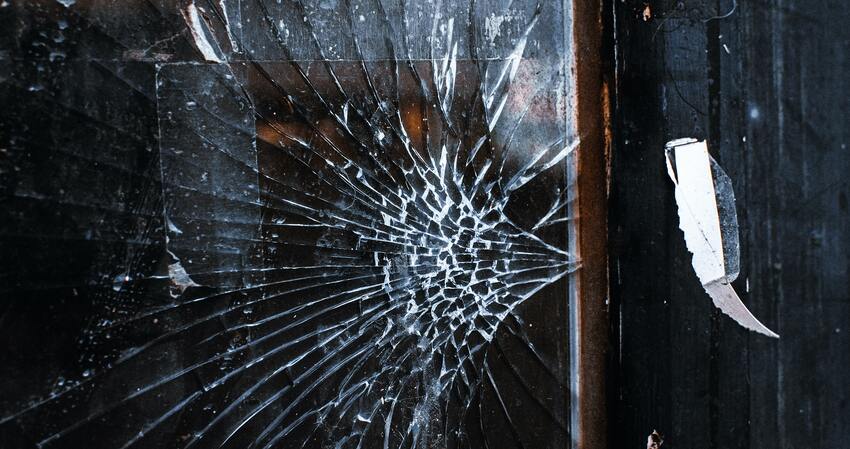
We’ve all seen glass shatter. In fact, most of us have probably had a few minor injuries from the stuff, but have you ever seen glass shatter all on its own? Well, it’s more common than you’d think and you don’t have to belt out a top C to make it happen either!
 Glass contains a huge amount of energy and thousands are shipped off to the emergency room every year because of spontaneous glass breakage. In fact, 2,000 in the US just from glass shower surrounds! Here are the top 5 causes…
Glass contains a huge amount of energy and thousands are shipped off to the emergency room every year because of spontaneous glass breakage. In fact, 2,000 in the US just from glass shower surrounds! Here are the top 5 causes…
- Damage During the installation process, glass can be chipped, nicked or ever so lightly cracked. It feels fine, it may even look near perfect, but as the glass expands and contracts stress concentrations can develop around those imperfections, leading to sudden breakage.
- Glass Binding Glass deflects in the wind and temperature changes make it expand and contract, so most modern fittings are given space and cushioning within the framework to allow for this. Having said that, glass isn’t always fitted so expertly and if there isn’t any space, it binds to the frame and a huge amount of stress is placed on the glass when the wind buffets against it. The result? An empty frame, a load of mess and potentially a few passers-by sporting some unwanted glass hats.
- Thermal Stress Yes, yes we know you know that glass expands and contracts as temperatures change, but this is different! Thermal heat stress normally occurs in ‘sealed insulating glass’, which is basically a huge sheet of glass that has been given a reflective coating to keep the heat out. The problem with this, is that’s it’s usually coated on the inside of the outside pane, causing massive heat build-up and expansion within the glass itself, causing, yep. You guessed it. Spontaneous glass breakage. Oh, and here’s an interesting fact for you…this is what caused the massive glass failure of the John Hancock Tower in Boston!
- NSI NSI (Nickel Sulphide Inclusions) is an impurity or foreign body, like a cancer within the glass that changes over time. More often than not, it’s due to the use of stainless-steel machinery during the glass making process. Tiny shavings containing nickel, find their way into the glass and grow, causing it to eventually shatter all by itself. This is always found in toughened glass and if you’re patient enough, you can actually identify exactly where the break started! Look out for the butterfly, or figure 8 pattern within the glass, each side spanning roughly 30mm. Between that, barely visible to the human eye, you’ll find the culprit…your NSI!
- Glass Thickness This is an obvious one but you’d be surprised how often a glass panel is installed which is either too large or too thin to cope with its expected wind loads. Actually, maybe we should change this one from ‘Glass Thickness’, to ‘Fitter Thickness’.
Don’t panic next time you’re taking a shower or gazing out of the window at work though! According to glass expert Mark Meshulam, it’s cheap and easy to prevent. He recommends fitting window film which holds the glass together and prevents injury.
If you’re worried about spontaneous breakage, talk to the experts a Solartek Films Ltd who can advise you on the best way to protect yourself at home and your staff at work!
Solartek Films Ltd supply and install all types of window film to glass nationwide and our 100 micron safety film which when installed upgrades non compliant or at risk glass to EN12600 and holds the glass together when it shatters.
Our edge retention systems bond the film to the frame so can stay in place until the glass is replaced, vital for overhead glazing.














